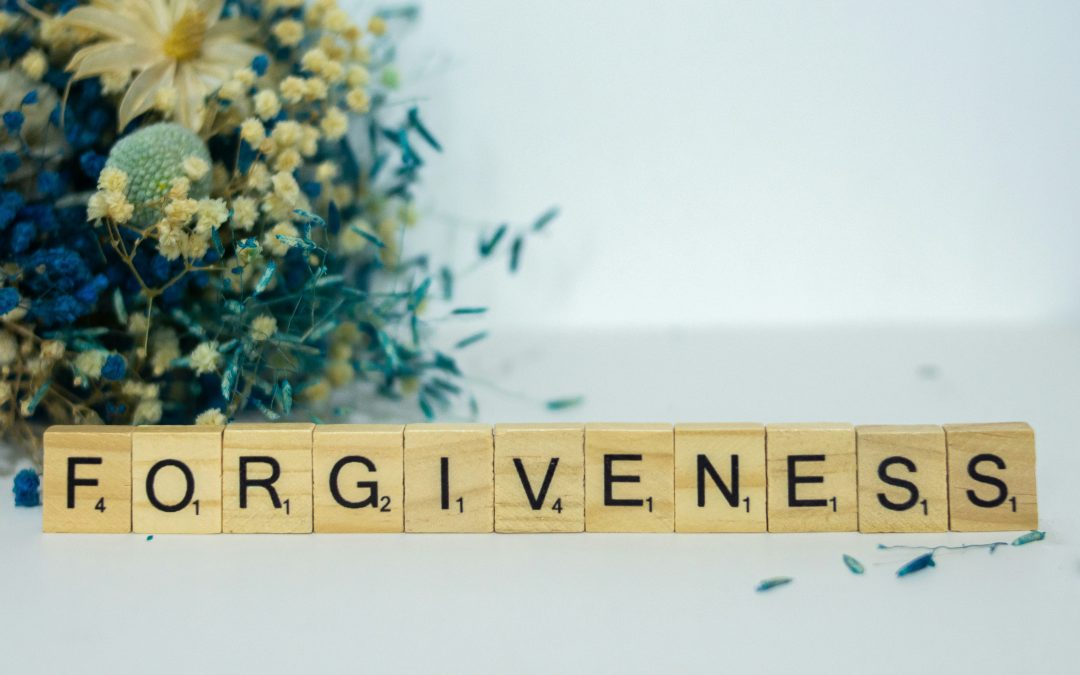He does not deal with us according to our sins, nor repay us according to our iniquities. For as high as the heavens are above the earth, so great is his steadfast love toward those who fear him; as far as the east is from the west, so far does he remove our transgressions from us. Psalm 103:10–13
One of the many blessings God has given us is that we have the capacity to be in relationship with others. From our relationships come great love, affection, and companionship, but a characteristic of the fall we can’t escape is we’ll hurt other people in this life; we’ll hurt and be hurt by others. In “Our Lives First,” author Diane Langberg reflects, “We must realize that we cannot sin without damaging each other.” Having the shared experience of hurting others, and being hurt by others, begs the need for us as Christians to understand forgiveness—what it means, what it looks like, how to do it—but for many of us, it’s not so easy. However, we could experience a radical change in our relationships with our friends, family, church, and especially with God, if we understood God’s forgiveness, not only with our heads, but specifically with our hearts, and practice forgiving others the way Christ modeled it for us.
What is Forgiveness?
Before understanding what forgiveness is, we need to understand what forgiveness is not. In his book “Psychology, Theology, and Spirituality,” Mark McMinn challenges common notions of forgiveness by explaining that forgiveness isn’t just saying, “I forgive you” to the person who hurt you; forgiveness isn’t forgetting or excusing your hurt that the offender has caused; forgiveness isn’t blaming yourself; and forgiveness isn’t always associated with repentance of or reconciliation with the offender. On the contrary, forgiveness is releasing the debt you think the offender owes you. Withholding forgiveness sows bitterness, resentment, and contempt; extending forgiveness sows joy and peace.
The Truth of God’s Forgiveness
Even though we might know all the right things to say and do to forgive someone, or even ourselves, we might still tend to feel like we haven’t quite gotten over the hurt someone has caused or the guilt we feel for what we’ve done. We carry an unnecessary burden of bitterness, resentment, guilt, or shame for the hurt others have caused us or the hurt we’ve caused others. Sometimes we feel like we have to go through the motions of forgiving others or ourselves because we think that will please God, when we actually couldn’t be any farther from the Truth in that way of thinking.
 After forgetting to buy a Christmas gift for his girlfriend, J.D. Greear recounts in his book, “Gospel,” his desperate attempt to save face by regifting a sweater to her that was originally intended for someone else. He compares his last-ditch effort to cover up his forgetfulness to our relationship with God: “I’ve often wondered in the years since then what would have happened that night had I come clean and told her the truth that my gift was only done to save face. No doubt, she would have refused it flatly. No girl wants to be loved only out of obligation. Somehow we think God is different, as if He is pleased when we serve Him because we’re required to. He’s not.”
After forgetting to buy a Christmas gift for his girlfriend, J.D. Greear recounts in his book, “Gospel,” his desperate attempt to save face by regifting a sweater to her that was originally intended for someone else. He compares his last-ditch effort to cover up his forgetfulness to our relationship with God: “I’ve often wondered in the years since then what would have happened that night had I come clean and told her the truth that my gift was only done to save face. No doubt, she would have refused it flatly. No girl wants to be loved only out of obligation. Somehow we think God is different, as if He is pleased when we serve Him because we’re required to. He’s not.”
Our obligatory service to God can come from many false beliefs in our hearts, including that he has not forgiven us. When we make decisions we later regret, we feel as if we need to “make it up” to God by “doing good things” or carrying the burden of our guilt on our shoulders. Meanwhile, we miss the crux of the cross that Jesus willingly died on. Romans 5:8 says Christ died for us while we were still sinners. Before we said “I’m sorry,” before we paid our dues or did our time, Jesus took on the world’s guilt and shame so that we would be made right with God. Jesus’s long trek on the road to calvary isn’t just a mere historical event; it has personal implications for each and every one of us, even if we don’t feel like it’s the Truth.
The more we invite the Truth of God’s forgiveness into our hearts, that He sees us as blameless and guiltless, the more willing we’ll begin to feel to forgive others and ourselves. And not understanding God’s forgiveness isn’t yet another thing to feel guilty about. Know that feelings of guilt and shame are not from God. Pray to God and ask Him to show you His Truth and adjust the posture of your heart, and watch how your heart will begin to soften toward yourself, God, and others.
Written by Brooke Thrasher, MA, Resident in Counseling.

